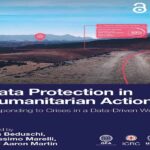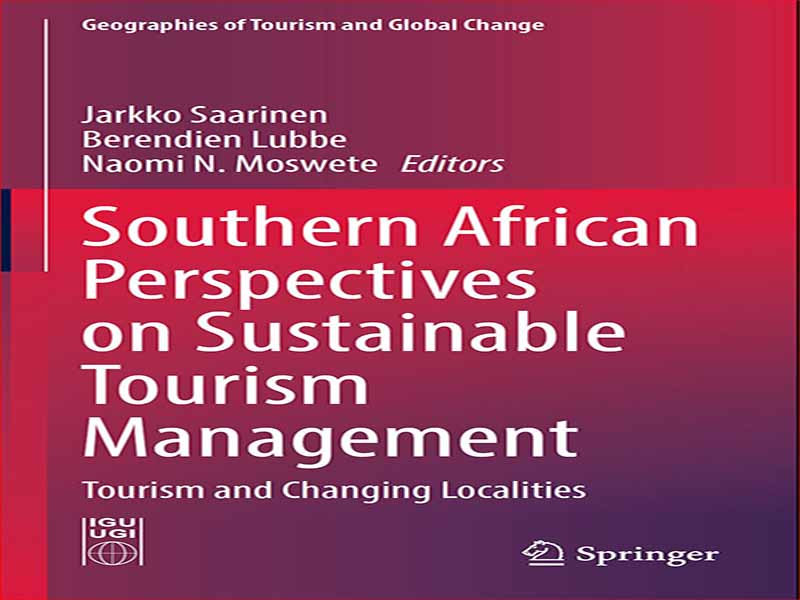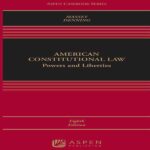- عنوان کتاب: Southern African Perspectives on Sustainable Tourism Management
- نویسنده: Jarkko Saarinen
- حوزه: گردشگری
- سال انتشار: 2022
- تعداد صفحه: 222
- زبان اصلی: انگلیسی
- نوع فایل: pdf
- حجم فایل: 4.19 مگابایت
این مجموعه ویرایش شده بر گردشگری، پایداری و تغییرات محلی در جنوب آفریقا تمرکز دارد. هدف این کتاب ارائه دیدگاه های همه کاره است که به تغییرات و چالش های مختلف در چشم انداز گردشگری جنوب آفریقا می پردازد. صنعت گردشگری یک اقتصاد فزاینده مهم در منطقه است و تغییرات زیادی را برای جوامع و محیط زیست ایجاد می کند. خود صنعت نیز با تغییرات و چالش های قابل توجهی مواجه است. محرک های کلیدی تغییر که شامل جهانی شدن، تغییرات آب و هوایی، و عمیق تر شدن نابرابری های جهانی و منطقه ای است، زمینه را برای مجموعه متنوع و هیجان انگیز مطالعات موردی از منطقه تشکیل می دهد. این کتاب یک رویکرد مبتنی بر مطالعه موردی برای پایداری و نیازهای مدیریت تغییر در توسعه گردشگری در زمینههای جامعه محلی ارائه میکند. فصلهای مطالعه موردی از طریق تمرکز کتاب بر گردشگری پایدار و توسعه جامعه محلی به هم مرتبط شدهاند. این کتاب به طور صریح و ضمنی بر نیاز به درک تغییرات جهانی و زمینه های محلی در توسعه گردشگری پایدار تأکید می کند. این کتاب حاصل پروژه کوچک مشارکتی است که توسط مرکز آفریقای جنوبی – نوردیک (SANORD) در سالهای 2018-2019 تامین شده است. پروژه گردشگری برای توسعه؟ دیدگاههای مدیریت گردشگری پایدار در جنوب جهانی توسط دانشگاه پرتوریا هماهنگ شد. شرکا عبارتند از: دانشگاه بوتسوانا، دانشگاه فنلاند شرقی، دانشگاه ژوهانسبورگ و دانشگاه اولو (FIN). اهداف سطح ملموس این پروژه گرد هم آوردن سرپرستان و دانشجویان فارغ التحصیل از طریق سازماندهی سمپوزیوم های دانشکده های تحصیلات تکمیلی بود. اولین جلسه در پردیس ورزشی Hillcrest دانشگاه پرتوریا در اکتبر 2018 برگزار شد. جلسه دوم بخشی از دوازدهمین کنفرانس علمی سالانه SANORD بود که توسط دانشگاه بوتسوانا در گابورون در سپتامبر 2019 میزبانی شد. علاوه بر این، بر اساس این جلسات و ایجاد شبکه ها، برنامه پردازش یک کتاب پژوهش محور ویرایش شده بود، از این رو این کتاب. برای حمایت از انتشار این کتاب، مایلیم از اسپرینگر و به ویژه پراساد گورونادهام، ایولین باکر و برنادت دیلن منز به خاطر حمایت و صبرشان تشکر کنیم. اگرچه این جلد بر مسائل COVID-19 تمرکز نمی کند، زیرا قبل از همه گیری آغاز شده است، بحران منجر به چالش هایی در رابطه با روند کتاب در برنامه و ترکیب آن شده است. همچنین از کارولین فانک و دیتر مولر ویراستاران مجموعه کتاب تشکر می کنیم. به عنوان ویراستاران کتاب، مایلیم از چند نفر و شریک در توسعه این کتاب قدردانی کنیم. Jarkko Saarinen مایل است از بسیاری از همکاران، دانشجویان تحصیلات تکمیلی، دوستان و موسسات و همچنین سایر بازیگران منطقه جنوب آفریقا که به ایده های مربوط به نیازهای پایداری در گردشگری کمک کرده اند تشکر کند. به ویژه، او مایل است از کریس و جین راجرسون در دانشگاه ژوهانسبورگ، رابین نونکو در دانشگاه موریس، جولیوس آتلهوپنگ در دانشگاه بوتسوانا و سی. مایکل هال در دانشگاه کانتربری نیوزلند تشکر کند. دانشگاه های ژوهانسبورگ، بوتسوانا و پرتوریا و همکاران آنجا، ویلا پابلو و آلسورلورن نیز در توسعه این کتاب مشارکت داشته اند. نائومی موسویت از واحد تحقیق و توسعه در دانشگاه بوتسوانا به دلیل حضور در تیم سازماندهی کنفرانس SANORD در سال 2019 که کمک زیادی به ایده های این پروژه کتاب کرد، تشکر می کند. از همه کسانی که در فرآیند کتاب شرکت کردند، مانند کارکنان دپارتمان علوم محیطی، یعنی Masego Mpotokwane، David Lesolle و Ditiro Moalafhi، و تعدادی از دانشجویان فارغ التحصیل تشکر فراوان داریم. همچنین از مری الن کیمارو در دانشگاه نامیبیا تشکر ویژه داریم. Berendien Lubbe مایل است از SANORD برای ایجاد فرصت برای همکاری در این پروژه و کتاب، که به دانشگاهیان اجازه میدهد تا ایدههای خود را به اشتراک بگذارند و روی این پروژه همکاری کنند، تشکر کند. از راهنماییها و نظرات Jarkko Saarinen بهعنوان ویراستار اصلی ما و Naomi Moswete بهخاطر افکار روشنگرانهاش درباره کتاب قدردانی میکنم. همچنین مایلم از پروفسور کارن هریس، رئیس دپارتمان مطالعات تاریخی و میراث در دانشگاه پرتوریا، برای حمایت همیشگی او در این تلاش ها تشکر کنم. در مجموع، مایلیم قدردانی خود را از همه کسانی که در نوشتن فصلها یا بررسی همتایان آنها مشارکت داشتند، ابراز کنیم. کتاب کلی بر اساس ویراستاران مجموعه به صورت خارجی بررسی شده است. علاوه بر این، هر فصل به صورت خارجی توسط کارشناسان مستقل در حوزه خود بررسی شد.
This edited collection focuses on tourism, sustainability and local change in southern Africa. The book aims to offer versatile perspectives that address various changes and challenges in the southern African tourism landscape. The tourism industry is an increasingly important economy in the region, and it is creating a multitude of changes for communities and the environment. The industry itself also faces significant changes and challenges. The key drivers of change that include globalisation, climate change, and deepening global and regional inequalities form the context for the diverse and exciting set of case studies from the region. The book offers a case study–driven approach to sustainability and change management needs in tourism development in local community contexts. The case study chapters are linked through the book’s focus on sustainable tourism and local community development. The book emphasises explicitly and implicitly the need to understand both global change and local contexts in sustainable tourism development. This book results from the small collaborative project funded by the Southern African – Nordic Centre (SANORD) in 2018–2019. The project ‘Tourism for Development? Perspectives to Sustainable Tourism Management in Global South’ was coordinated by the University of Pretoria. The partners were: the University of Botswana, the University of Eastern Finland, the University of Johannesburg and the University of Oulu (FIN). The concrete-level aims of the project were to bring together supervisors and graduate students by organising graduate school symposiums. The first meeting was held at the Hillcrest Sports Campus of the University of Pretoria in October 2018. The second meeting was a part of the 12th SANORD Annual Scientific Conference hosted by the University of Botswana in Gaborone in September 2019. Furthermore, based on these meetings and created networks, the plan was to process an edited research-based book, hence this book. For supporting the publishing of this book, we would like to thank Springer and especially Prasad Gurunadham, Evelien Bakker and Bernadette Deelen-Mans for their support and patience. Although this volume does not focus on the COVID-19 issues, as it has been initiated before the pandemic, the crisis has resulted in challenges pertaining to the book process in its schedule and composition. Our thanks also go to the book series editors Caroline Funck and Dieter Muller. As the editors of the book, we would like to acknowledge several individuals and partners in the development of this book. Jarkko Saarinen would like to thank many colleagues, postgraduate students, friends and institutions as well as other actors from the southern African region who have contributed to the ideas related to sustainability needs in tourism. In particular, he would like to thank Chris and Jayne Rogerson at the University of Johannesburg, Robin Nunkoo at the University of Mauritius, Julius Atlhopheng at the University of Botswana, and C. Michael Hall at the University of Canterbury, New Zealand. The Universities of Johannesburg, Botswana and Pretoria and the colleagues there, Villa Pablo and Allesverloren, have also contributed towards the development of this book. Naomi Moswete would like to thank the Research and Development Unit at the University of Botswana for being part of the organising team towards the SANORD conference in 2019, which contributed immensely towards the ideas of this book project. Many thanks go to all those who took part in the process of the book, such as staff from the Department of Environmental science, namely Masego Mpotokwane, David Lesolle and Ditiro Moalafhi, and a score of graduate students. Special thanks also go to Mary Ellen Kimaro at the University of Namibia. Berendien Lubbe would like to thank SANORD for creating the opportunity for collaboration on this project and book, allowing academics to share ideas and work together on this project. I appreciate the guidance and input of Jarkko Saarinen as our lead editor and Naomi Moswete for her insightful thoughts on the book. I would also like to thank Prof Karen Harris, Head of the Department of Historical and Heritage Studies at the University of Pretoria, for her constant support in these endeavours. Collectively, we would like to express our appreciation to all who contributed to writing the chapters or peer reviewing them. The overall book has been externally peer reviewed based on the series editors. In addition, each chapter was externally peer reviewed by independent experts in their field.
این کتاب را میتوانید از لینک زیر بصورت رایگان دانلود کنید:
Download: Southern African Perspectives on Sustainable Tourism Management




































نظرات کاربران